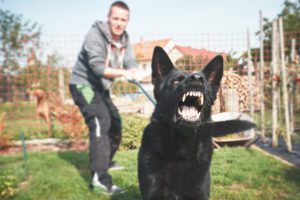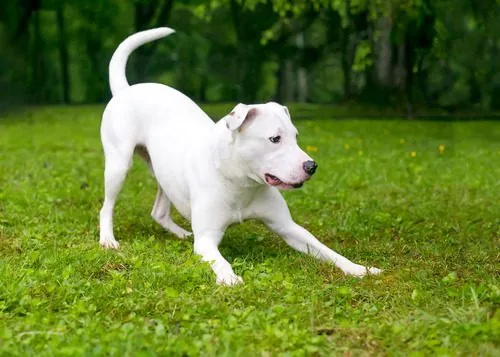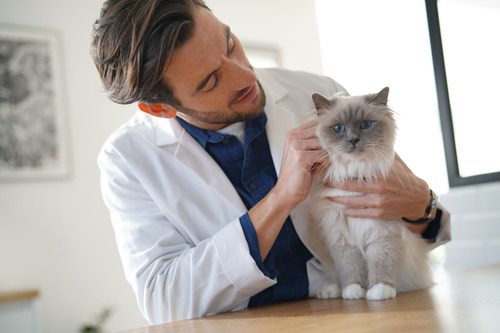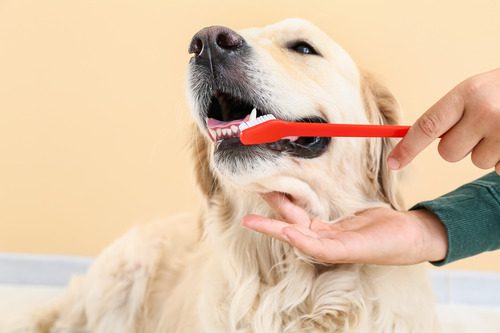Understanding Why a Dog Growls in Alameda, CA
Growling is one of the natural ways that dogs communicate, and this is often a sign that a dog is feeling anxious or is being territorial. In these cases, growling is widely considered to be a warning before aggressive behavior. However, this is not necessarily always the case every time.
Growling in dogs can mean several different things. Of course, growling can be a sign that a dog is being possessive or territorial, and it can mean that a dog is nervous or frightened as well. Both things could be a precursor to aggressive behaviors like biting. However, this is not always true every time. This is because many dogs will also growl when they are playing.
In this article we will be explaining everything that dog owners need to know about growling in dogs. This includes the reasons why dogs growl and how to tell the difference between them. In addition to this, we will also be answering some other commonly asked questions about growling in dogs. Let’s get into it!
4 Causes for Growling In Dogs
There are generally four causes for growling in dogs. These causes include playing, being stressed or frightened, pain, and possessive or territorial behavior. Here are the four reasons why dogs growl.
Your Dog Is Play Growling
If your dog growls when they are playing, then they are likely just play growling. A dog that is play growling will appear to be happy and relaxed despite their growling, and they should definitely not appear to be stiff, defensive, or nervous.
Play growling is actually a pretty common behavior in dogs, and it is completely normal and healthy as well. As a result, dog owners do not need to be worried about or fix their dog’s play growling.
Your Dog Is Stressed or Scared
Dogs will also growl when they are feeling frightened or stressed out. Most of the time this is a warning before the dog reacts aggressively. Although a dog may not always snap or bite after growling from fear or stress, it is still always best to be cautious. Usually a dog will show other signs of anxiety along with growling. These signs of anxiety in dogs include but may not be limited to:
- A tucked tail
- Ears pinned back
- Hairs raised
- Whale eye (whites of eyes showing)
- Snarling
- Lip licking
- Crouching low to the ground
- Attempting to escape or hide
When dealing with a fearful dog it is best to react cautiously and carefully. This way you do not risk the chance of the fearful dog lashing out aggressively. If this kind of behavior is common in your dog then it is a good idea to visit a vet and a qualified dog trainer or animal behaviorist. This way you can rule out a medical issue and provide your dog with the help that they need.

Your Dog is in Pain
Pain is also a fairly common cause of growling in dogs. This is normally due to the stress and anxiety that pain can cause dogs to experience. Like with stress and anxiety, dogs normally exhibit some other symptoms of pain besides growling. However, this may not always be the case. Here are some of the other potential signs of pain in dogs to look out for.
- Lethargy
- A reduced appetite
- Whimpering or whining
- Hiding and avoiding touch
- Trembling
- Walking with an unusual gait
- Limping
- Being unable to jump or run
- Excessive licking or self-grooming
If you notice any of the above symptoms in your dog then the best thing that you can do is take them to the vet as soon as possible. This way you can get your dog feeling better and reduce their growling at the same time.
Your Dog Is Being Possessive or Territorial
Of course, dogs will also growl when they are acting possessively or territorial. Unfortunately, growling in this way is often a precursor to other behaviors like snapping and biting. As a result, it is always best to seek out help from a qualified dog trainer or animal behaviorist if your dog behaves in this way. In addition to this, it may also be a good idea to get your dog seen by a vet to rule out a medical problem being the cause for your dog’s growling.
Does Growling Always Mean Aggression?
No, growling does not always mean that a dog is acting aggressively. Play growling is a prime example of growling from a dog that is not a warning for aggressive behavior.
What Does A Low Growl From a Dog Mean?
Technically speaking, a dog giving a low growl could technically mean any of the reasons that we have mentioned previously. Rather than paying attention to the pitch of the growl, it is better to pay attention to your dog’s body language while they are growling.
For example a happy dog growling or grumbling is normally a sign that they are just play growling. Meanwhile, if a dog appears to be anxious or frightened while they are growling then these feelings are likely the cause.
When a dog is growling because they are in pain then they may appear to be fearful as well. This is usually due to fear of being touched and worsening the pain. On the other hand, dogs being possessive or territorial will appear to be stiff and alert.

Why You Should Never Punish Growling in Dogs
You should never punish your dog’s growling. This is because growling from dogs is usually a warning before biting. It is always better if a dog growls before behaving aggressively because it provides people with a warning, which could prevent them from being bitten. Although any aggressive behavior from a dog is not ideal, growling is better than biting without warning.
How Do You Respond When a Dog Growls?
Cases of growling should be handled carefully, and it often requires the help of a qualified dog trainer or animal behaviorist. In addition to this, it is also best to take your dog to the vet if they growl often because this behavior can be caused by pain or uncomfortable medical conditions. When it comes to play growling this is a normal and healthy behavior, so you do not really need to do anything if this happens.
For more information or questions on why a dog growls, call Providence Veterinary Hospital East at (510) 521-6608 or West at (510) 521-5775.
Recent Posts
What Does Your Dog’s Tail Wag Really Mean?
What Does Your Dog’s Tail Wag Really Mean? Dogs use their tails for much more than just…
Feline Leukemia: Prevention and Detection
Feline Leukemia: Prevention and Detection Cat Feline Leukemia is a serious viral disease that affects felines worldwide….
A Team Effort: How Home Care and Professional Cleanings Keep Your Dog’s Teeth Healthy
A Team Effort: How Home Care and Professional Cleanings Keep Your Dog’s Teeth Healthy Dental health is…
The Perfect Pair: Home Care and Professional Cleanings for Your Cat’s Teeth
The Perfect Pair: Home Care and Professional Cleanings for Your Cat’s Teeth Caring for your cat’s teeth…
What is Bordetella and Why Should You Care?
What is Bordetella and Why Should You Care? Bordetella is a term many pet owners hear when…
Providence Veterinary Hospital & Clinic serve Alameda, CA as well as Oakland, San Leandro, and the surrounding areas with superb veterinary medicine and gentle, compassionate care. We’ve been a part of this community since 1947 when a veterinarian started seeing pets in his home after the end of World War II. He built an animal hospital right under his house, and that’s where we remain to this day (with modern remodeling in 2016, to outfit the hospital with the latest medical technology and equipment, of course!).





